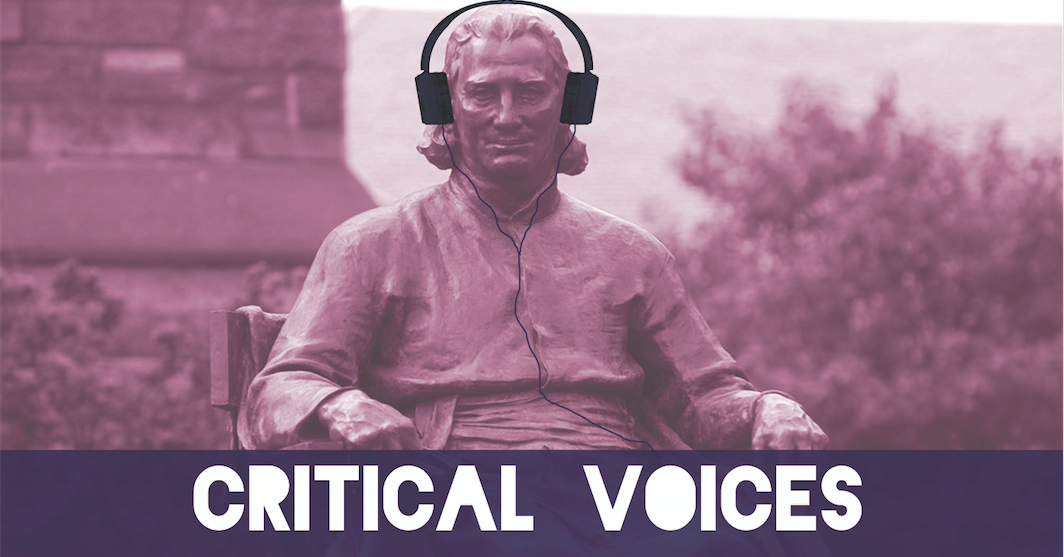DREAMERS embody just about everything that defines an indie band, from their bold, pop-rock sound and to their upbeat acceptance of failures. Their debut This Album Does Not Exist (2016) was strategically released in late August — a time when audiences seek upbeat, carefree sounds — and is brimming with energetic, youthful rebelliousness, as well as frequent lyrical appeals to millennials. DREAMERS unapologetically discusses every definition of f*cked up—sometimes ironically, sometimes reflectively—but manages to create a diversity of sound and emotion within their narrow range of subject matter.
From the opening track, “DRUGS,” the Brooklyn-based trio self-identify as millennials who “do it for the drugs” and “don’t wanna think for ourselves,” mocking societal stereotypes while highlighting their own carefree vibe. The declarations come in choppy bursts, but the instrumental waves undulate in such a way that the sound is almost as mesmerizing as the drugs discussed, mirroring DREAMERS’ cyclical quest for the next high. It’s a proper start for an album that depicts the oscillations of happiness and defeat in a life that continues in spite of them.
DREAMERS occupy a distinctive frame of indie rock and grunge pop, with little or no break from their chosen genre. However, each song involves a unique application of their style, avoiding tedious redundancy. This Album Does Not Exist is dominated by 90s-style grunge percussion and guitar, but also incorporates elements of synth-pop into a coherent, upbeat blend. The style proves incredibly versatile, providing a suitable foundation for songs ranging from frustrated, raucous tracks like “Shooting Shadows” to calmer, almost romantic tracks like “Come Down Slow.” Lyrically, songs are consistently light and uncomplicated, but range in tone from tongue-in-cheek and wild to heartfelt and personal.
This Album Does Not Exist artfully captures the dynamic range of emotions that occur within a relationship, coupled with the subtle nuances of thoughts and feelings that vary by time and situation. DREAMERS provide several different takes on a relationship wrought with a mix of joys and struggles: “Cry Out For Me” and “Painkiller” are DREAMERS’ direct takes on the “love the way that you hurt me”—or in their case, “kill me”—motif, and other tracks offer slight variations of the same emotion. The album features one of DREAMERS earliest hits, “Wolves (You Got Me),” which discusses a love that is difficult and destructive, but love nonetheless. The track showcases the strength of DREAMERS unique synth-instrumental blend, as classic guitar and percussion maintain the high energy of the speaker’s frantic state, but the electric synthesis adds a smooth layer that unifies the diverse song with a reflective element, as the calmer tones allow space for contemplation. Pop-rock track “Lucky Dog” is a far more positive perspective on how a relationship has taken over one’s life, and is correspondingly faster-paced with greater emphasis on guitar and percussion over electric synth.
DREAMERS take a softer turn towards the end of their album, in contrast to their overall high intensity. Like the silent aftermath of a disaster, the end of This Album Does Not Exist is reflective with a hint of hopefulness. “Come Down Slow” alternates between conversational, poetic confessions over soft guitar and an almost dreamlike, echoing chorus dominated by guitar chords and percussive rhythms. The result is cathartic like a deep breath, and demonstrates DREAMERS’ aptitude for soft alternative in addition to pop-rock. “Little New Moon” closes the album with fast rhythms and a slow chorus, effectively a single, vibrating chord—a unified conclusion that somehow emerged from the chaotic, confusing emotions that DREAMERS learn to deal with over the course of the album.
If there’s one thing that DREAMERS need to work on, it’s breaking the indie-rock bubble. All of DREAMERS’ most defining qualities — from their attention to drugs and relationships to their propensity for drug, moon, and wolf metaphors — are established aspects of quintessential indie culture. Pop-rock anthem “Never Too Late to Dance” is a blatant echo of WALK THE MOON. Shadows of alternative-rock inspiration permeate the entire album, and some portions of songs sound deeply familiar as DREAMERS seem to have drawn inspiration from the bands they have opened for. DREAMERS show incredible potential within their sphere, but have yet to fully develop an individual, signature style to differentiate themselves from the established indie alternative schema that DREAMERS have wedged themselves into. This Album Does Not Exist is largely a product of past inspiration, but its creative aspects demonstrate a hefty potential for DREAMERS to emerge as a talented, inventive indie rock band.
DREAMERS recently announced that they will be touring in direct support of the Griswolds, and will appear as an opening act at U St. Music Hall in Washington, DC on Feb. 24th.
Voice’s Choices: “Sweet Disaster,” “Wolves (You Got Me),” “Shooting Shadows”



